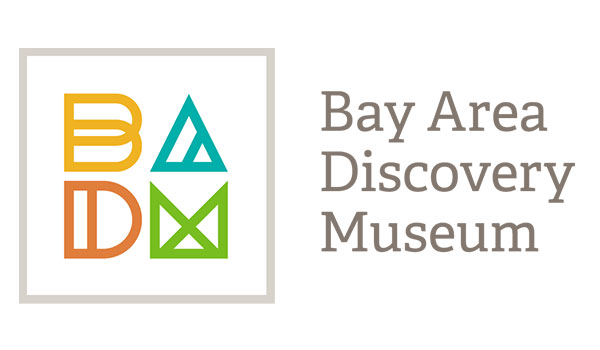In new position paper, the Center for Childhood Creativity outlines six key findings to reframe early school readiness
Sausalito, CA – The Center for Childhood Creativity (CCC), the research division of the Bay Area Discovery Museum, released Reimagining School Readiness: A Position Paper with Key Findings, which surfaces the skills and conditions that matter most for a child’s success in school and life, and provides a guide to educators (and parents) on how to design learning experiences and environments to support this development.
“After a review of more than 150 studies on cognitive and developmental psychology, we found that we are missing the mark in preparing our children for learning and achievement by equating ‘kindergarten school readiness’ with a finite checklist of academic skills to be mastered by age five,” says Elizabeth Rood, Ed.D., co-author of Reimagining School Readiness: A Position Paper with Key Findings and Director of the Center for Childhood Creativity/Vice President of Education Strategy at the Bay Area Discovery Museum. “Instead we should think about school readiness as a robust developmental process that spans the early childhood years through age eight.”
In Reimagining School Readiness: A Position Paper with Key Findings, Rood and co-author Helen Hadani, Head of Research at the Center for Childhood Creativity at the Bay Area Discovery Museum, outline six key findings on how adults can provide children with developmentally appropriate and rich experiences to boost learning and cognitive development:
- Quality adult-child interactions shape children’s thinking skills. The conversations we have, the questions we ask, and the experiences we provide matter. Simple shifts in our approach and language boost children’s learning and cognitive development.
- Science learning is critical for the development of higher-order thinking but is missing from most early school experiences.
- Demonstrating strong math skills at an early age is a strong indicator of developing conceptual thinking skills and predicts long-term success in school, not just in later math learning but also in later reading proficiency.
- Planning, self-awareness, and self-control—what psychologists refer to as “executive functions”—predict positive school and life outcomes. Studies show that children develop executive functions through experience.
- Children with stronger social skills do better in school, in the workplace, and in life. Child-directed play and modeling of helping behaviors are key to the development of social skills and need to be prioritized in early education.
- Higher-order thinking, retention of information, and creativity flourish when children experience minimized stress and when their basic needs are met. While persistent stress can impede brain development, caring relationships with adults as well as programs that teach emotion regulation provide protection from risk.
“We hope this paper helps educators change their lens on typical kindergarten readiness checklists and understand how to shift their practice to promote depth of thinking and quality of interaction, rather than rote learning and knowledge,” explains Rood.
Click here to read the full Reimagining School Readiness: A Position Paper with Key Findings.
Interview Availability:
Elizabeth Rood, Ed.D., author of Reimagining School Readiness: A Position Paper with Key Findings and Director of the Center for Childhood Creativity/Vice President of Education Strategy at the Bay Area Discovery Museum, is available for media interviews on the topics of kindergarten school readiness, brain development during early childhood, executive function skills and 21st century skills in early childhood education, and the development of early STEM and creativity programs for out-of-school learning environments like the Bay Area Discovery Museum. Rood has more than 15 years of experience in formal education, working as a teacher, principal, and executive director in small urban schools focused on personalization, equity, and progressive education.
About the Center for Childhood Creativity
The Center for Childhood Creativity (CCC) is the Bay Area Discovery Museum’s research division established in 2011 to bridge the gap between academic research in the fields of neuroscience, education, psychology, and creativity studies with the practitioners charged with raising a generation of future innovators. The CCC works at a national scale to advance our understanding of creativity development and advocate for its critical importance. Learn more at CenterforChildhoodCreativity.org.
About the Bay Area Discovery Museum
The Bay Area Discovery Museum is a children’s museum in Sausalito that applies the latest research to develop early learning experiences that inspire and build creative problem solving skills in children, transforming the way they learn and the way they contribute to the world. As an independent 501(c)(3) nonprofit organization, the museum provides STEM-focused, inquiry-driven experiences that develop creativity and conceptual thinking, critical components of problem solving. BayAreaDiscoveryMuseum.org
###

